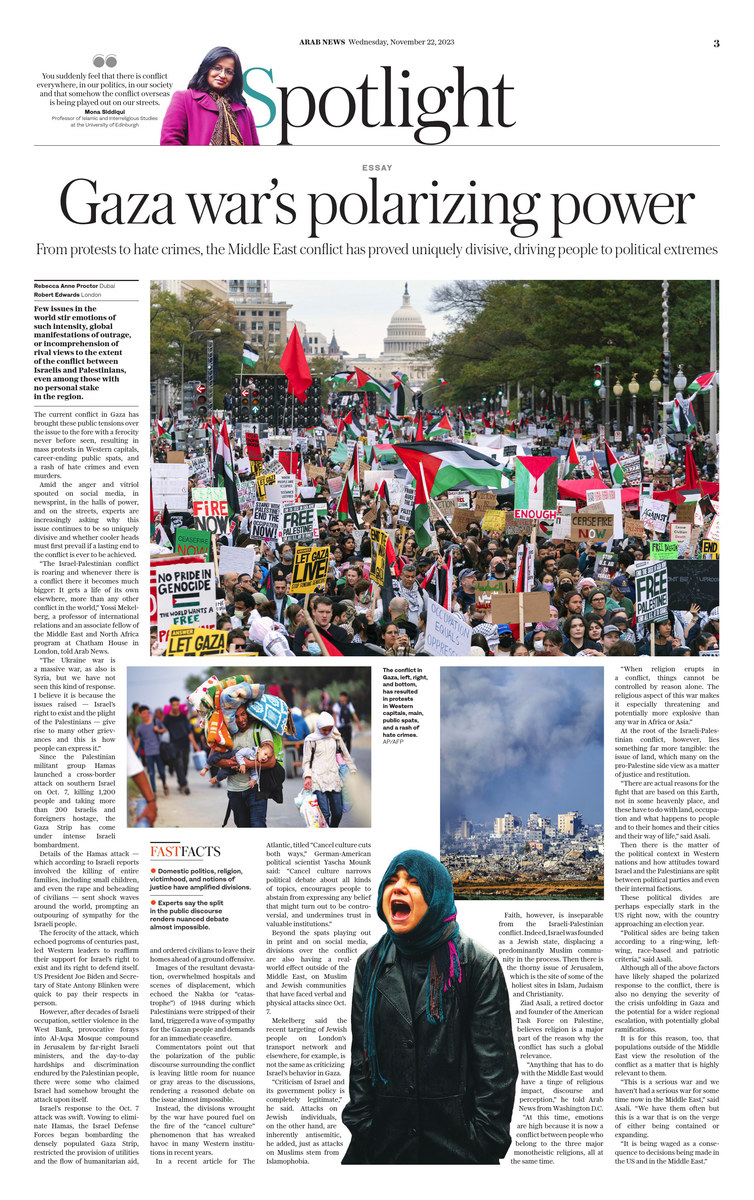Why is the latest Israel-Hamas war in the long-running Middle East conflict proving to be so polarizing?
DUBAI/LONDON: Few issues in the world stir emotions of such intensity, global manifestations of outrage, or incomprehension of rival views to the extent of the conflict between Israelis and Palestinians, even among those with no personal stake in the region.
The current conflict in Gaza has brought these public tensions over the issue to the fore with a ferocity never before seen, resulting in mass protests in Western capitals, career-ending public spats, and a rash of hate crimes and even murders.
Amid the anger and vitriol spouted on social media, in newsprint, in the halls of power, and on the streets, experts are increasingly asking why this issue continues to be so uniquely divisive and whether cooler heads must first prevail if a lasting end to the conflict is ever to be achieved.
“The Israel-Palestinian conflict is roaring and whenever there is a conflict there it becomes much bigger: It gets a life of its own elsewhere, more than any other conflict in the world,” Yossi Mekelberg, a professor of international relations and an associate fellow of the Middle East and North Africa program at Chatham House in London, told Kuwait Weekly.
“The Ukraine war is a massive war, as also is Syria, but we have not seen this kind of response. I believe it is because the issues raised — Israel’s right to exist and the plight of the Palestinians — give rise to many other grievances and this is how people can express it.”
Since the Palestinian militant group Hamas launched a cross-border attack on southern Israel on Oct. 7, killing 1,200 people and taking more than 200 Israelis and foreigners hostage, the Gaza Strip has come under intense Israeli bombardment.
Details of the Hamas attack — which according to Israeli reports involved the killing of entire families, including small children, and even the rape and beheading of civilians — sent shock waves around the world, prompting an outpouring of sympathy for the Israeli people.
The ferocity of the attack, which echoed pogroms of centuries past, led Western leaders to reaffirm their support for Israel’s right to exist and its right to defend itself. US President Joe Biden and Secretary of State Antony Blinken were quick to pay their respects in person.
However, after decades of Israeli occupation, settler violence in the West Bank, provocative forays into Al-Aqsa Mosque compound in Jerusalem by far-right Israeli ministers, and the day-to-day hardships and discrimination endured by the Palestinian people, there were some who claimed Israel had somehow brought the attack upon itself.
Some, particularly the regime in Iran and its proxy militias throughout the region, openly praised the Hamas assault, while many of the group’s sympathizers in the West described the attackers as “freedom fighters” rather than terrorists.

Israel’s response to the Oct. 7 attack was swift. Vowing to eliminate Hamas, the Israel Defense Forces began bombarding the densely populated Gaza Strip, restricted the provision of utilities and the flow of humanitarian aid, and ordered civilians to leave their homes ahead of a ground offensive.
Images of the resultant devastation, overwhelmed hospitals and scenes of displacement, which echoed the Nakba (or “catastrophe”) of 1948 during which Palestinians were stripped of their land, triggered a wave of sympathy for the Gazan people and demands for an immediate ceasefire.
In tandem with this, there have been renewed calls for a two-state solution that includes the creation of an independent Palestinian state in Gaza and the West Bank, based on the 1967 borders, with East Jerusalem as its capital.
However, some on the pro-Palestinian side have also revived controversial slogans such as “From the river to the sea, Palestine will be free” — a refrain that appears to suggest the elimination of Israel between the Jordan river and the Mediterranean — leading to accusations of antisemitism.
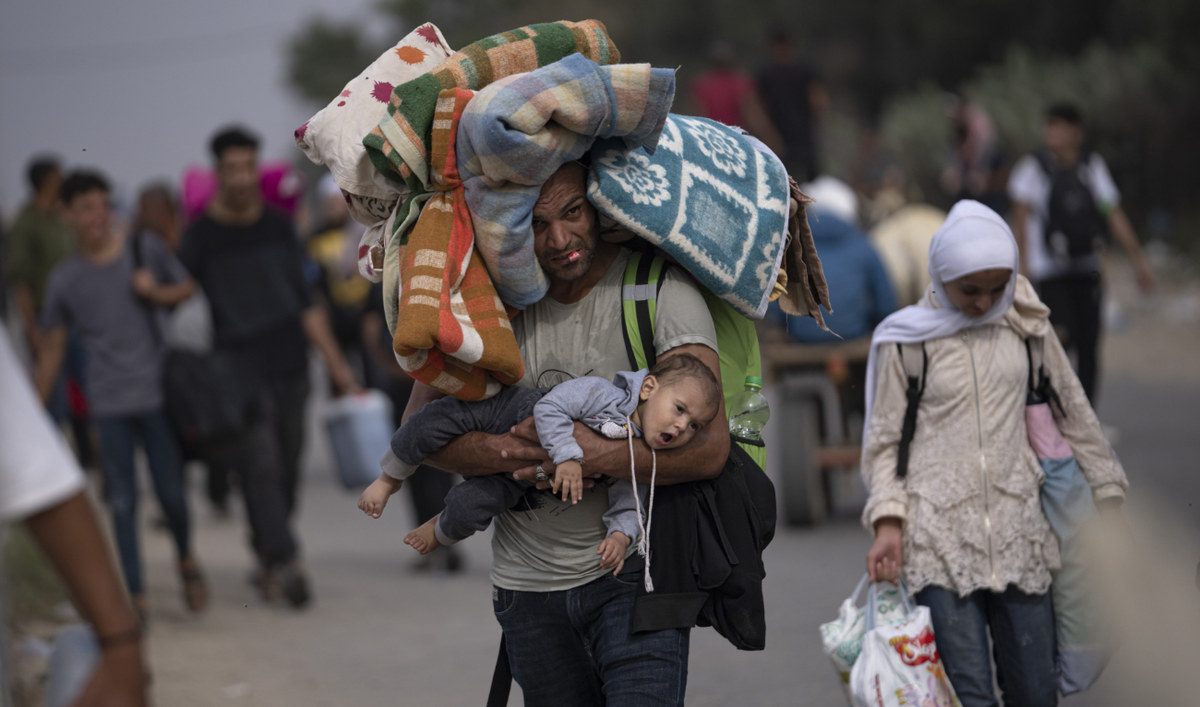
Commentators point out that the polarization of the public discourse surrounding the conflict is leaving little room for nuance or gray areas to the discussions, rendering a reasoned debate on the issue almost impossible.
“Each side begs for the status of five-star victim,” Mohammed Darawshe, director of strategy at the Givat Haviva Center for Shared Society in Jerusalem, which promotes Jewish-Arab dialogue, was quoted as saying in a recent article by Roger Cohen in The New York Times.
“If you are stuck in victimhood, you see everyone else as victimizing and dehumanizing.”
During a recent interview with CNN’s Christiane Amanpour, British academic Mona Siddiqui, a professor of Islamic and interreligious studies at the University of Edinburgh, said: “You suddenly feel that there is conflict everywhere … in our politics, in our society, and that somehow the conflict overseas … is being played out on our streets.”
Siddiqui called for a new “moral imagination” capable of shaping views on the conflict from abroad without further inflaming tensions.
Instead, the divisions wrought by the war have poured fuel on the fire of the “cancel culture” phenomenon that has wreaked havoc in many Western institutions in recent years.
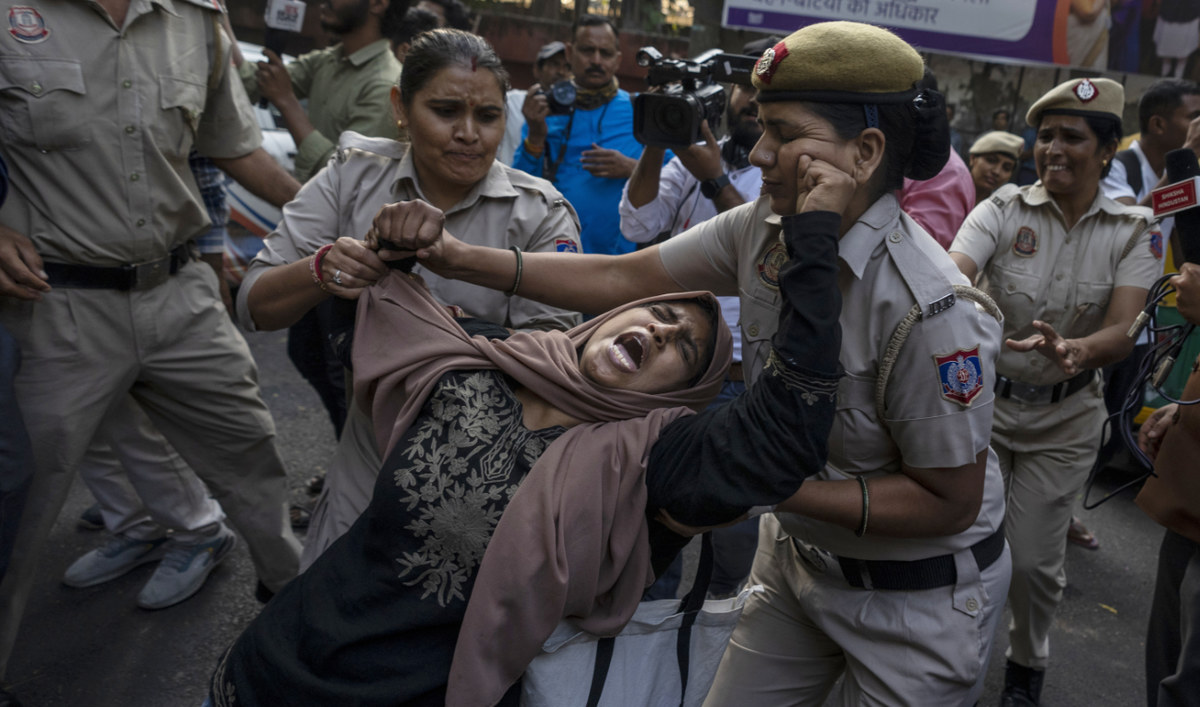
David Velasco, the editor of Artforum, an influential US magazine, was fired for publishing an open letter on Oct. 19 calling for “Palestinian liberation” and an “immediate ceasefire.” His sacking prompted numerous other staff to resign.
Michael Eisen, a genetics professor at the University of California, Berkeley, and editor of eLife, an influential journal for the life sciences, was ousted from his job after he retweeted a satirical article published by The Onion titled “Dying Gazans criticized for not using last words to condemn Hamas.”
Eisen was dismissed despite also having posted a message on X in which he said: “I condemn Hamas. I condemn the way Israel has treated Palestinians. I condemn the way one abhorrent act is used to justify another.”
Perhaps the most high-profile sacking related to the issue was that of Suella Braverman, until recently the UK’s home secretary, who wrote an op-ed in The Times, without the authorization of Downing Street, in which she accused London’s Metropolitan Police of displaying pro-Palestinian bias when policing rival protests.
In a recent article for The Atlantic, titled “Cancel culture cuts both ways,” German-American political scientist Yascha Mounk said: “Cancel culture narrows political debate about all kinds of topics, encourages people to abstain from expressing any belief that might turn out to be controversial, and undermines trust in valuable institutions.”

Beyond the spats playing out in print and on social media, divisions over the conflict are also having a real-world effect outside of the Middle East, on Muslim and Jewish communities that have faced verbal and physical attacks since Oct. 7.
Mekelberg said the recent targeting of Jewish people on London’s transport network and elsewhere, for example, is not the same as criticizing Israel’s behavior in Gaza.
“Criticism of Israel and its government policy is completely legitimate,” he said. Attacks on Jewish individuals, on the other hand, are inherently antisemitic, he added, just as attacks on Muslims stem from Islamophobia.
Faith, however, is inseparable from the Israeli-Palestinian conflict. Indeed, Israel was founded as a Jewish state, displacing a predominantly Muslim community in the process. Then there is the thorny issue of Jerusalem, which is the site of some of the holiest sites in Islam, Judaism and Christianity.
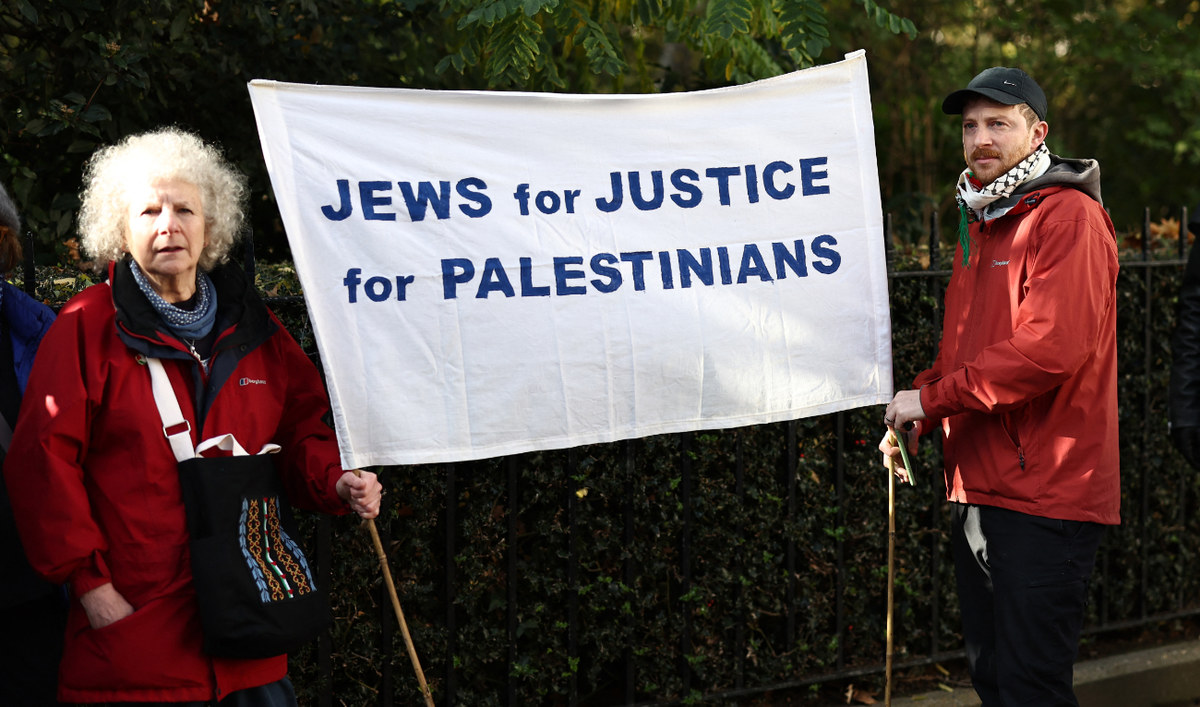
Ziad Asali, a retired doctor and founder of the American Task Force on Palestine, believes religion is a major part of the reason why the conflict has such a global relevance.
“Anything that has to do with the Middle East would have a tinge of religious impact, discourse and perception,” he told Kuwait Weekly from Washington D.C.
“At this time, emotions are high because it is now a conflict between people who belong to the three major monotheistic religions, all at the same time.
“When religion erupts in a conflict, things cannot be controlled by reason alone. The religious aspect of this war makes it especially threatening and potentially more explosive than any war in Africa or Asia.”
At the root of the Israeli-Palestinian conflict, however, lies something far more tangible: the issue of land, which many on the pro-Palestine side view as a matter of justice and restitution.
“There are actual reasons for the fight that are based on this Earth, not in some heavenly place, and these have to do with land, occupation and what happens to people and to their homes and their cities and their way of life,” said Asali. “It is tragic beyond belief.”
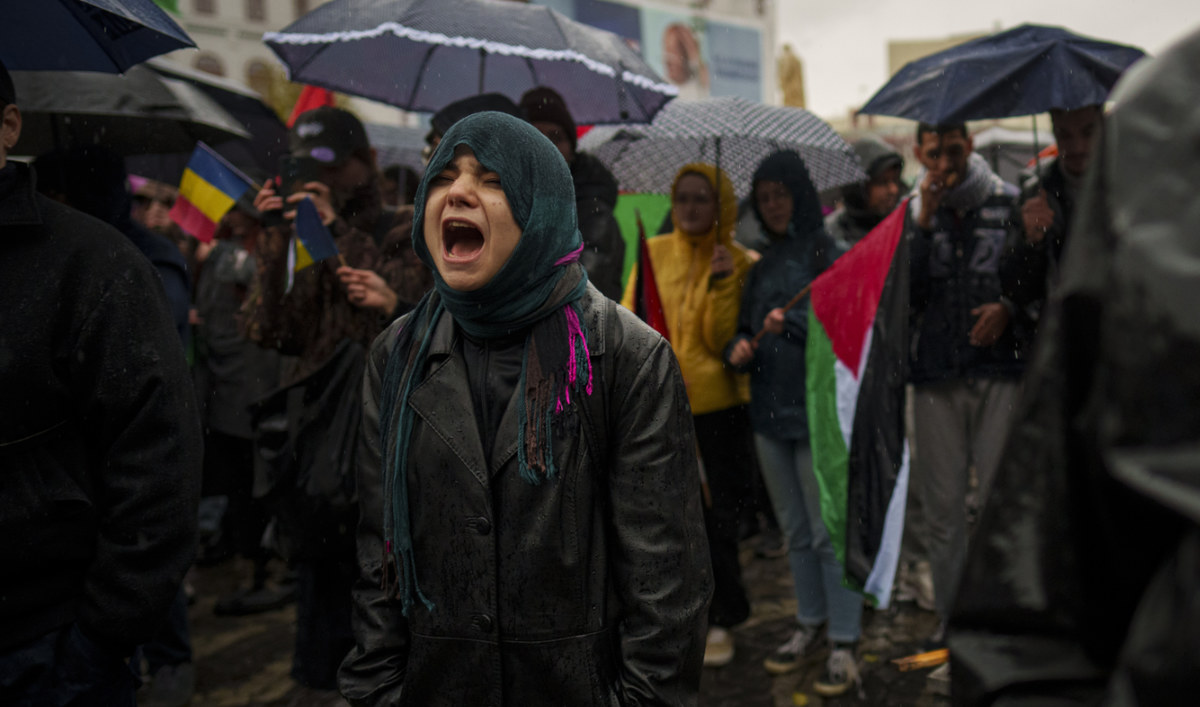
Then there is the matter of the political context in Western nations and how attitudes toward Israel and the Palestinians are split between political parties and even their internal factions.
These political divides are perhaps especially stark in the US right now, with the country approaching an election year in which the stakes are considered to be higher and where the current executive is mindful that it is toeing a very narrow line.
“Political sides are being taken according to a ring-wing, left-wing, race-based and patriotic criteria,” said Asali.
Although all of the above factors have likely shaped the polarized response to the conflict, there is also no denying the severity of the crisis unfolding in Gaza and the potential for a wider regional escalation, with potentially global ramifications.
It is for this reason, too, that populations outside of the Middle East view the resolution of the conflict as a matter that is highly relevant to them.
“This is a serious war and we haven’t had a serious war for some time now in the Middle East,” said Asali. “We have them often but this is a war that is on the verge of either being contained or expanding.
“It is being waged as a consequence to decisions being made in the US and in the Middle East.”
